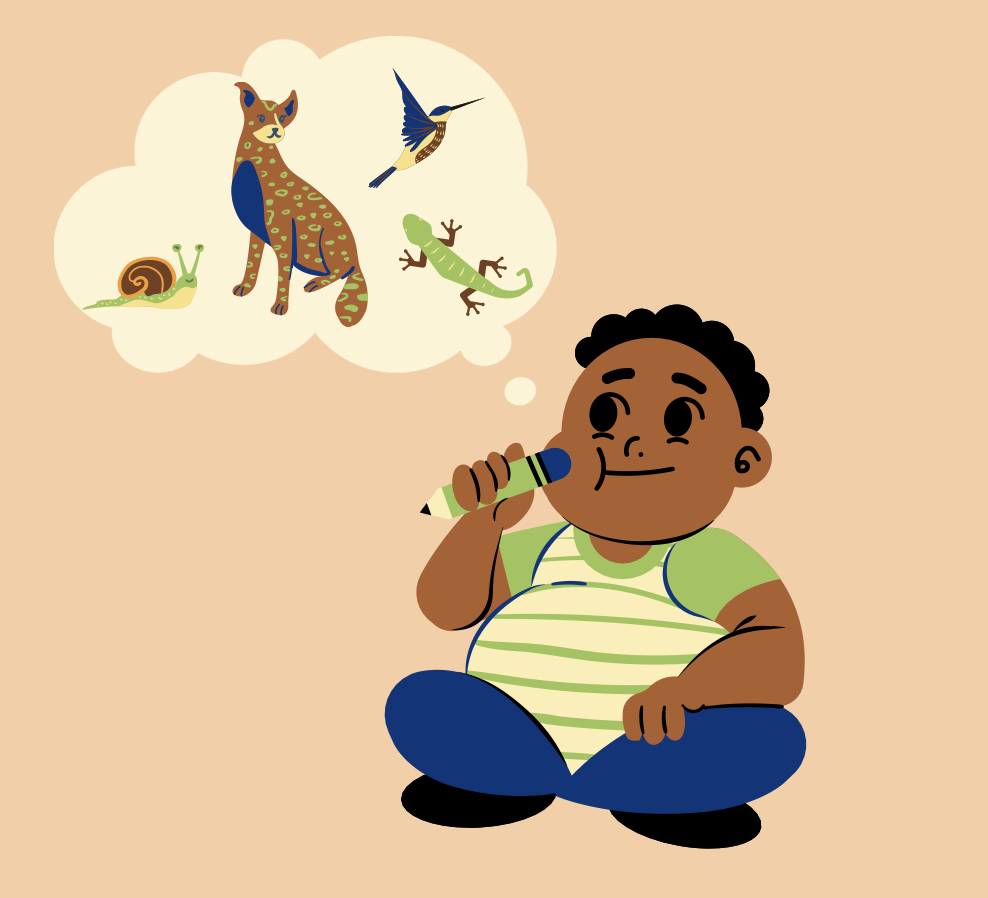Children’s Reasoning About the Natural World
The overarching goal of research in the Cognitive Development Lab is to contribute to a deeper understanding of how children reason about the natural world, with an emphasis on reasoning about change.
Additionally, we are growing more interested in environmental influences, like conversations with family members and cultural values/beliefs, and their role in children’s cognitive development.
Read about some of our current research projects below!
The Role of Visual Representation in Children’s Learning about Biological Variability

Leveraging Simple card games to promote children’s learning about biological variability
Games can provide a playful learning environment for children. In this project, we are interested in how different features of games support relational reasoning in caregiver-child talk and foster learning about foundational biological concepts in caregivers and children.
This research is funded by a National Science Foundation grant.
We are collaborating with Drs. Martha Alibali (University of Wisconsin-Madison), Benjamin Jee (Worcester State University), and Florencia Anggoro (College of the Holy Cross). Additionally, we are proud to partner with the Strong National Museum of Play and Rochester Museum and Science Center.
Parent-Child Conversations about Health and Illness

We examine how children’s learning about health and illness is facilitated by conversations with their guardians. Specifically, we are interested in the questions children ask and their guardians’ responses.
From this, we can learn what children are curious about (e.g., the biological causes of illness, ways to stay healthy) and how they drive their own learning.
Currently, we are examining parent-child conversations in the context of the COVID-19 pandemic.
